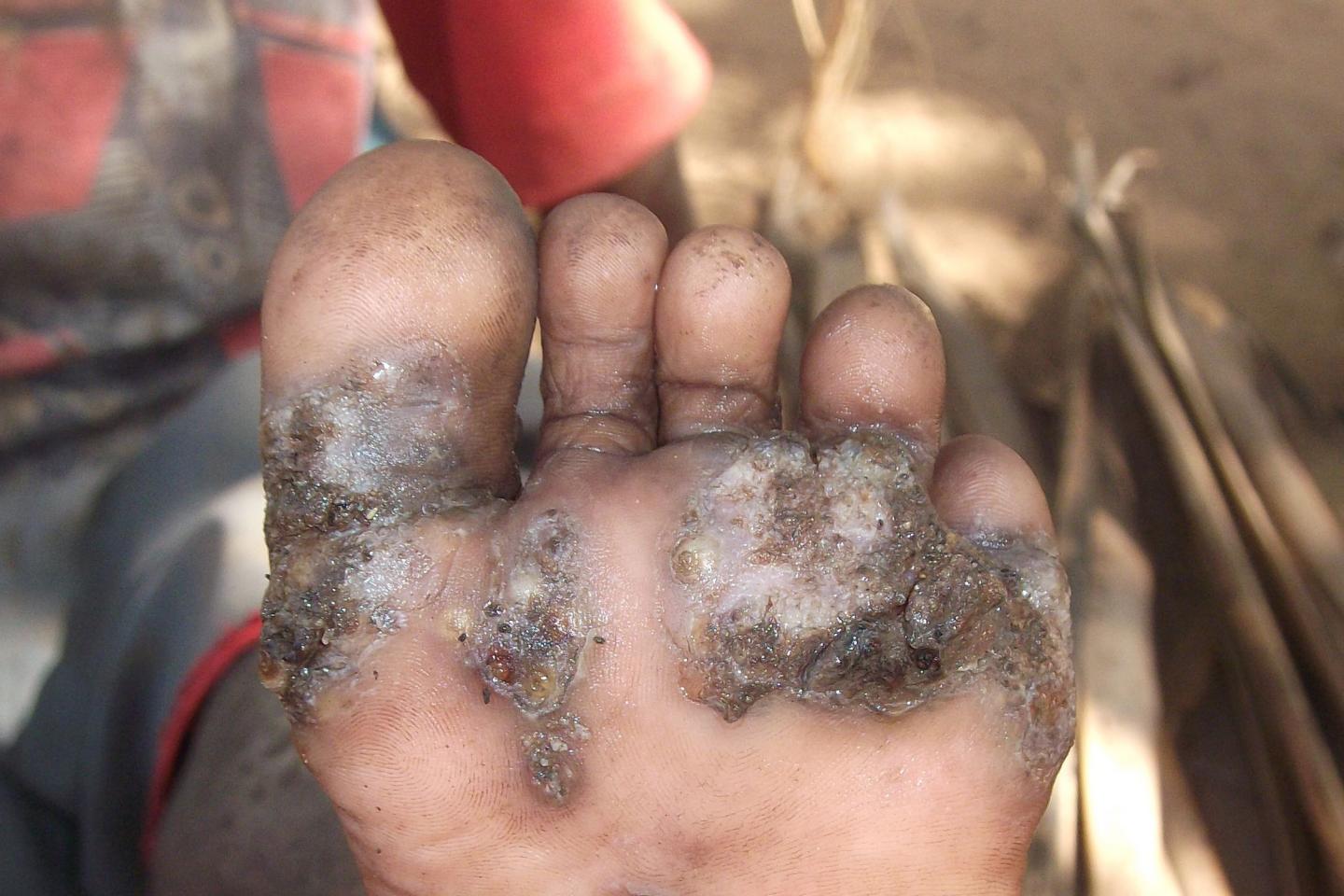
Credit: Lynne Elson, 2013, CC BY 4.0
Tungiasis is a neglected tropical disease caused by penetrated sand fleas which burrow into the skin of the feet. Public health policies such as sealing house and classroom floors and daily feet washing with soap could cut the number of tungiasis cases in school-aged children, researchers now report in PLOS Neglected Tropical Diseases.
Tungiasis affects millions of people in South America, the Caribbean and sub-Saharan Africa. The sand fleas responsible for tungiasis rapidly grow once in a human host, causing immense itching, inflammation, pain and debilitation. There are currently no good treatment methods available in affected areas, and people often use non-sterile methods to attempt to remove the fleas themselves, causing more damage. Awareness of tungiasis has been growing in East Africa in recent years, but data on epidemiological characteristics are scarce.
In the new work, a group of scientists from KEMRI-Wellcome Trust Research Programme, Kenya, the International Centre of Insect Physiology and Ecology (icipe), Charité University of Medicine, Berlin and Dabaso Tujengane Kenya, examined the feet of 1,829 students of all age groups from 5 schools in coastal Kenya. In one subset of participants, observations were repeated after a school holiday. Structured interviews were conducted with 707 students to get data on household infrastructure, behavior and socio-economic status.
The overall prevalence of tungiasis was 48%, with boys between the ages of 10 and 14 years most at risk and factors related to socio-economic status positively associated with disease risk. Children returned from their school holiday with higher rates of infection. The data suggested that mild to moderate tungiasis could be reduced by a third, and severe tungiasis by more than half, if homes had sealed floors, while roughly a seventh of the cases could be prevented by sealing classroom floors and another fifth by using soap for daily feet washing.
“Observations from our study suggest that up to 70% of tungiasis cases may be prevented through simple prevention methods,” Dr. Lynne Elson the lead author says, “There is a clear role for public health workers to expand the WASH policy to include washing of feet with soap in school-aged children to fight tungiasis and to raise awareness of the importance of sealed floors.”
###
In your coverage please use this URL to provide access to the freely available paper: http://journals.
Citation: Elson L, Wiese S, Feldmeier H, Fillinger U (2019) Prevalence, intensity and risk factors of tungiasis in Kilifi County, Kenya II: Results from a school-based observational study. PLOS Neglected Tropical Diseases 13(5): e0007326. https:/
Funding: The study was supported by German Doctors e.V., Bonn, Germany through a grant to HF. https:/
Competing Interests: The authors declare that no competing interests exist.
Media Contact
Lynne H Elson
[email protected]
Original Source
http://journals.
Related Journal Article
http://dx.




